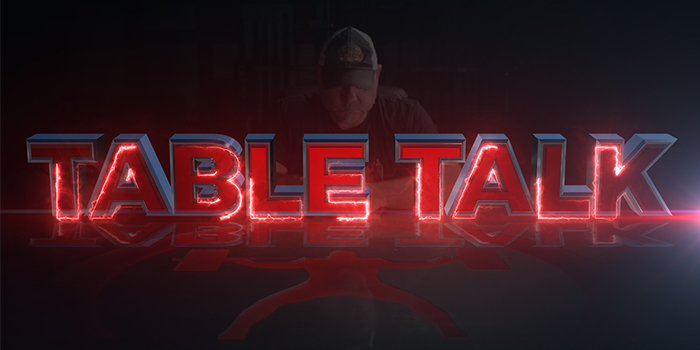
If you collected the best coaches in the industry, what would they all have in common? Years of personal experience under the bar? An academic background in physiology, sports performance, or related fields? A laundry list of person strength accomplishments, earned through competing at the highest level? In Dave's mind, it's actually none of these things. The thing that makes a coach great isn't their PRs or their degrees. For today's Table Talk, Dave responds to a reader-submitted question about the qualities of a great coach:
What are three things that you think make a great powerlifting coach or a coach in general?
Dave begins by saying that he isn't going to list three things that make a great coach, because there's only one thing that stands above all else: great coaches care more about their clients than they care about themselves. If you look for a coach that has this quality, you'll find a coach that will help you reach your goals. For strength sports, particularly online coaching, Dave believes there are several levels of coaching.
First, you have the coaches that just suck. They suck as lifters, they suck as coaches, and they suck at helping people. These coaches are trying to find their identity and be part of the iron game, so they create personas and pretend to be genius mathematicians able to revolutionize training. In reality, they've never accomplished anything themselves, never produced anyone worth a shit, and are at the bottom of the barrel. These coaches are easiest to spot and are actually the minority in the industry.
Second, there is the middle space, the majority of the industry, the meaty part of the bell curve. These are people who do compete—bodybuilding, powerlifting, strongman, or another discipline—and are looking for ways to pay for their competitive expenses. These coaches operate on the thought that there is no better way to pay for their strength sport expenses than to pull in 15 to 20 online clients, whose payments will fund the extra food, gym dues, and expenses that are incurred by competing. These coaches don't care much about their clients and just want to find a way to make it easier and more convenient for them to only have to worry about their own training and goals. Not every coach in this category sucks, but be mindful of the fact that their motivation for training clients is to find the easiest way to enable them to pursue their dreams of competing. The success of their clients is not the priority, but they will likely promote their clients and may still be able to help them.
The final group of coaches consists of people who possess the quality of caring more about their client's success than their own. These coaches don't treat competing as a number one priority, either because they've already retired from their sport, it isn't their main goal in life, or they simply don't have the genetic capacity to compete at the level they'd like. These coaches are in the warm-up room, but not on the platform. They are messaging and emailing clients, but not posting on social media to take credit. They don't need to constantly advertise and try to replace their clients, because their clients aren't leaving them.
The takeaway from all of this, in Dave's words, is that there is only one indicator of what makes a great coach, and that's caring more about the clients than themselves.










